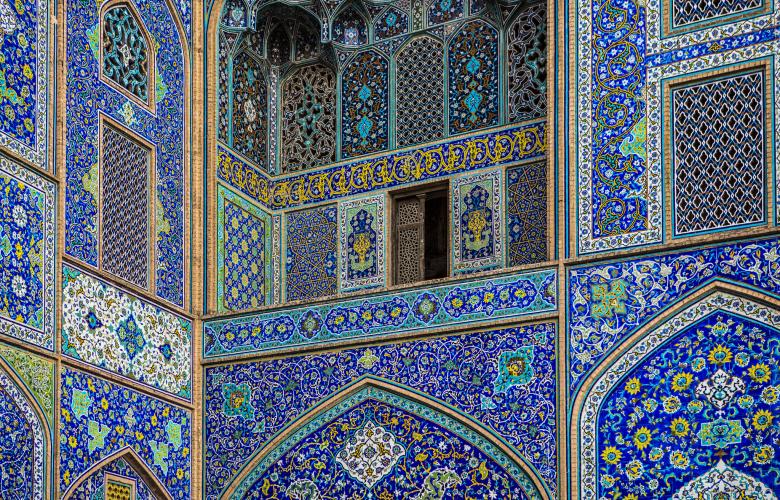Guide to visas, currency, banking, credit cards, ATMs and property taxes in Iran
Guide to visas, currency, banking, credit cards, ATMs and property taxes in Iran
A guide for foreigners and expats for living / buying or renting real estate in Iran. Including information on Iran real estate taxes, residency permits in Iran, banking in Iran and work permits.
This article is intended as a preliminary guide only and refers to some but not all elements required to consider in detail prior to starting any property dealings or due diligence. Property dealings are often complex, especially in foreign countries and we highly recommend you seek independent professional advice... read more...
Residency permits
According to the Islamic Embassy of the Republic of Iran in Brussels, permanent residence is issued for a foreigner who has chosen territory of Iran as its legal place of domicile, otherwise the residence of a foreign national is considered temporary. But permanent residency is not essential according to Iran Investment and Business Guide as The Council of Ministers may grant the right for foreigners to own property if they travel regularly to Iran as a tourist.
Permanent and temporary residence permit will be issued by Aliens Affairs Bureau of Law enforcement forces, 8 days after arrival in Iran. Foreign nationals are not allowed to remain in Iran longer than given permission, but temporary and permanent residence permits may be renewed and extended. Exit permit visas for foreign nationals are also issued by Aliens Affairs Bureau of Law.
To help reduce the unemployment rate and provide opportunities for educated local job seekers, Iranian employers must apply for permission from the Department General for Employment of Foreign Nationals to employ foreigners.
Work permits
To work in Iran, expats need a business entry visa, available from the Ministry of Foreign Affairs (MFA)
To apply for this, you will need:
- A letter from your employer who is sponsoring you in Iran
- A visa approved by the Ministry of Foreign Affairs (MFA) in Tehran
- The MFA will send an authorization number to the Iranian consulate
- A completed application form
- Passport photos (females will need to wear a headscarf)
- Permit fee
You can use a registered visa agency to get your permit, such as iranianvisa.com which will allow you to apply online with all of the items listed above and using digital headshot images.
Once this process is complete, you will need to attend an interview at the Iranian embassy or consulate and they will give you a visa stamp in your passport.
It is advised to apply for a visa eight weeks in advance to avoid delays in processing your application.
Note: Israelis, or anyone with an Israeli stamp in their passport, will not be given a visa. British, Canadian and US nationals are banned from independent travel through Iran as of March 2014.
Currency
The currency used in Iran is the Rial. Prices in shops are written in Rials, but prices are often referred to in Tomans, which is equal to 10 Rials.
Banking
It can be difficult to organising accounts in Iranian banks, so for shorter stays it may be easier to use your home country bank. But if you plan to stay for an extended period, you can set up local accounts. The Iranian banking system consists of a central bank, the Bank Markazi, which issues currency and oversees all the other state and private banks. Several commercial banks have branches located throughout Iran. When choosing a bank, consider the interest rates, fees, online banking availability, and number of branches for your convenience. Iran is largely a cash society, so make sure you have enough to suit your needs.
Credit cards and ATMs
It can be difficult to use your overseas bank debit and credit cards in ATMs, so it may be easier to convert money into local currency at bureaux de change. ATMs for local banks are plentiful in big cities but less so outside these areas.
Taxes
Expats usually only pay tax after residing in Iran for more than 183 days within a tax year and receive income from sources in Iran. As the tax system is complex, see if your employer can help establish your tax liabilities, otherwise it may be wise to hire a tax expert.
According to the British Iranian Chamber of Commerce the government assumes a certain salary for employees depending on their position and country of origin, usually from US$2,500 for the unskilled to US$7,000 for European senior directors. Expat’s incomes are taxed at 35%, and they are not permitted to leave the country unless they provide evidence that they have paid their taxes.
Article sources:
Ministry of Foreign Affairs (MFA)
Islamic Embassy of the Republic of Iran in Brussels
See also:
How to rent a property in Iran
Where foreigners can buy or rent property in Iran
This article and the above linked artciles are not complete and are intended as preliminary guides only. These guides refer to some elements to consider prior to starting any property dealings or due diligence. Property dealings are often complex areas, especially in foreign countries and we highly recommend you seek independent professional advice... read more...




